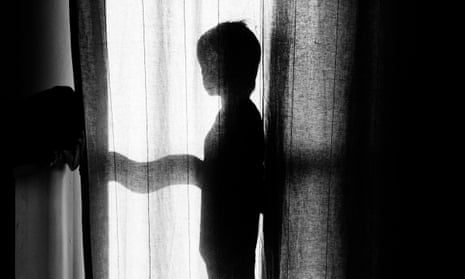More than a million vulnerable children in England are growing up emotionally damaged and with reduced life chances as a result of billions of pounds of austerity cuts to family support and youth services, according to a cross-party House of Lords inquiry.
The Lords Public Services Committee said the pandemic had accelerated a pre-existing “crisis of child vulnerability” in which increasing number of youngsters and parents were unable to access help before their problems spun out of control.
Too many children in deprived areas were taken into care, excluded from school, suffered from poor health, struggled in the job market or ended up in prison because of the lack of services able to intervene early with at-risk youngsters, it said.
It called for early years spending to be “levelled up” after revealing £1.7bn a year funding cuts to Sure Start, youth and other family support services over the past decade had disproportionately affected children in the most deprived communities.
For example, while Walsall had seen early intervention services reduced by 81%, Manchester by 75% and Liverpool by 65%, relatively affluent Surrey had seen cuts of just 10% and a handful of councils such as leafy Buckinghamshire had even increased early years spending.
Lady Armstrong, the chair of the committee, called on ministers to urgently restore early intervention funding to 2010 levels and publish a national strategy to help vulnerable children. “Too many children fall through the gaps, go into care, are excluded from school or end up in prison – all of which costs the public purse more in the long run,” she said.
Although the committee welcomed the government’s promise to invest £500m in early years services over the next three years, partly through the expansion of so-called “family hubs”, the committee said this fell short of what was needed after a decade of massive underinvestment.
Vulnerable children were defined by the committee as aged 0-19 whose lives were not in immediate danger but who without targeted support were at risk of significant harm and diminished life chances. They included children with mental health problems or whose parents were mentally ill, or victims of domestic violence.
While the pandemic had made it impossible to produce formal statistical estimates of the numbers of vulnerable children in 2021, the committee concluded there had been a big increase on the 829,000 vulnerable and “invisible” children identified in 2019 as not in receipt of support from services.
The collapse of council-funded early intervention services between 2010-11 and 2019-20, when spending in England fell by an average of 48%, was linked to a 34% increase in spending over the same period on costlier late interventions such as youth justice, looked-after children’s services and safeguarding.
The Local Government Association said the crisis meant many councils were overspending children’s budgets by millions of pounds a year. Councillor Anntoinette Bramble, the chair of the Local Government Association’s Children and Young People Board, said the report was “a stark reminder of the challenges councils face supporting and protecting vulnerable children”.
A government spokesperson said: “We’re prioritising the wellbeing and safety of children, which is why we announced significant additional investment in services for families at the spending review.
“We’re also providing the largest mental health funding in NHS history, alongside our Mental Health Recovery Plan, and support to improve mental health in schools. In addition, we have provided more than £28m to domestic abuse organisations to keep helplines and vital services running.”
